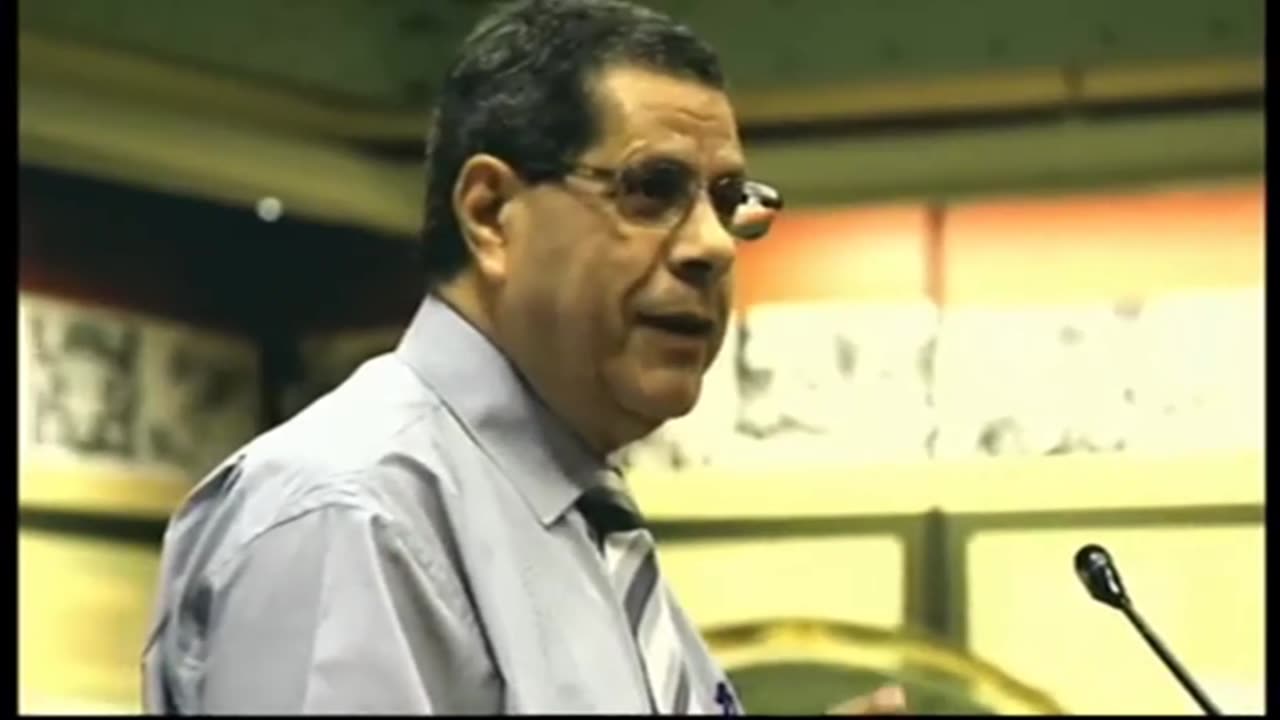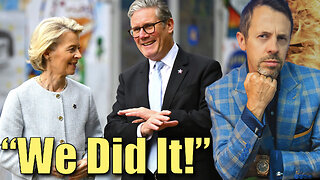Premium Only Content

Fayek Iskander - The Arab Spring and its Consequences
SUMMARY:
------------------------------
I’m genuinely excited to share this powerful talk by Reverend Fayek Iskander, an Egyptian-born Presbyterian minister now serving in Australia, as he unpacks what he calls the ‘Islamism spring’ rather than the usual ‘Arab Spring’. With deep knowledge of Arabic, Scripture and Islamic studies, Fayek brings a personal, candid perspective on how devout Islamist movements — notably the Muslim Brotherhood and Salafi currents — have filled the power vacuum across parts of the Middle East. He argues that the uprisings didn’t bring stable democracy but instead empowered religious fundamentals who often lean on Quranic verses and Hadith to justify political aims. Using examples like public figures in Egypt and controversial religious speeches, Fayek highlights key consequences for governance, civil liberties and interfaith relations. As an Australian who loves both his adopted country and his homeland, he speaks with warmth, concern and clarity about what these changes mean for Muslims, Christians and broader society. If you want an informed, faith-based, inside perspective on post‑2011 shifts in the region and the real-world implications, this talk is a must-watch.
RUMBLE DESCRIPTION:
-----------------------------------
Hi everyone — I’m glad you’ve found this clip of Reverend Fayek Iskander speaking about what he prefers to call the ‘Islamism spring’ instead of the usual ‘Arab Spring’. Fayek is an Egyptian-born Presbyterian minister who served in Egypt for 14 years before moving to Australia in 1992. He brings a rare combination of pastoral experience, Arabic fluency and academic background in islamic studies. In this talk he lays out the consequences of the uprisings across the Middle East, arguing that religiously devout groups such as the Muslim Brotherhood and Salafi movements have taken centre stage in many countries and that, far from ushering in stable democracy, the region has in many places become more hostile to democratic norms.
Fayek covers how certain Quranic verses and Hadith are used in political discourse, mentions well-known figures and episodes from post‑2011 Egypt, and speaks frankly about what this means for Christians, Muslims and pluralistic societies. He also shares his personal attachment to both Egypt and Australia, explaining why these developments matter to diasporas and to Australians interested in global affairs.
If you’re interested in Middle East politics, religious movements, interfaith issues or how migration shapes our understanding of international events, this talk will give you a thoughtful, faith-informed viewpoint. Please like, share and comment with your thoughts — Fayek welcomes respectful conversation. Subscribe for more talks and interviews about faith, society and geopolitics.
⚠️ CONTENT DISCLAIMER ⚠️
The views, opinions, and statements expressed in this video are those of the individual speaker(s) and audience members. They do not necessarily reflect the views, opinions, or positions of Western Heritage Australia or its affiliates.
This content is presented for educational and informational purposes as well as to facilitate public discourse on important social and political issues. We provide a platform for diverse Australian voices to be heard, to assist the public in forming their own informed opinions.
Western Heritage Australia does not endorse, verify, or take responsibility for the accuracy of statements made by speakers. All claims, statistics, and opinions remain the responsibility of the original speaker. Viewers are encouraged to conduct their own research and consult multiple sources when forming opinions on these topics.
This video may contain strong political opinions, controversial viewpoints, strong language, or mature themes. Viewer discretion is advised.
-
 26:07
26:07
Lady Decade
8 hours agoGaming Feminists Just Discovered Islam - & It’s Not Going Well
14 -
 LIVE
LIVE
Side Scrollers Podcast
1 day ago🔴SIDE SCROLLERS FUND-A-THON🔴DAY 2🔴100% REVENUE HELPS CHANGE CULTURE!
1,449 watching -
 UPCOMING
UPCOMING
Rebel News
20 minutes agoCarney 'controlling' Trump, Alberta municipal elxns, Too many new Canadians | Rebel Roundup
-
 LIVE
LIVE
Neil McCoy-Ward
42 minutes ago⚠️ They’re Applauding the Collapse – Let That Sink In... 🔥
42 watching -
 LIVE
LIVE
TheAlecLaceShow
55 minutes agoNo Kings Protests EXPOSE Leftists | Ballroom Meltdown | Guest: Chris Salcedo | The Alec Lace Show
30 watching -
 LIVE
LIVE
LFA TV
13 hours agoLIVE & BREAKING NEWS! | TUESDAY 10/21/25
3,799 watching -
 1:00:30
1:00:30
VINCE
4 hours agoHere's What REALLY Happened During This Weekend's Chaos | Episode 151 - 10/21/25
151K124 -
 LIVE
LIVE
The Mel K Show
1 hour agoMORNINGS WITH MEL K - The Battle for Your Brain the "Donald Trump" Psyop - 10-20-25
723 watching -
 LIVE
LIVE
The Shannon Joy Show
1 hour agoRFK & GOP Fast Track A Biometric Data Heist. Has MAHA Been Hijacked By Tech Bros? W/ Aaron Day
197 watching -
 LIVE
LIVE
Daniel Davis Deep Dive
4 hours agoCol Doug Macgregor LIVE Today 12:00p est
169 watching